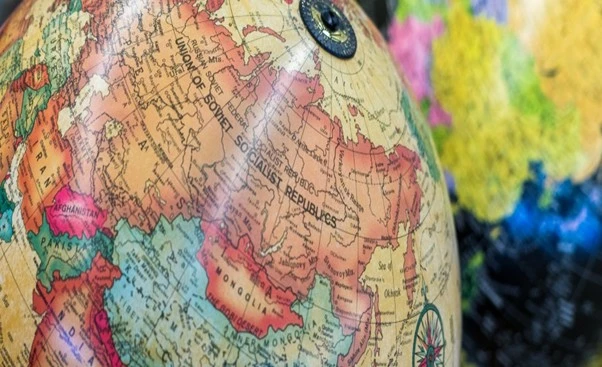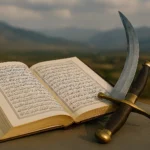Few countries have found themselves so often at the junction of geopolitical competition in the great sweep of history as Iran. Iran is experiencing a revived strategic relevance reminiscent of its place in the 19th-century “Great Game,” the classic imperial conflict between the British and Russian empires for dominance in Central Asia, as the tectonic plates of global power shift yet again today. Driven by a complex interaction of regional aspirations, global realignments, and ongoing Western tensions, the modern “Iran moment” puts Tehran at a pivotal junction between East and West, ideology and realpolitik.
Iran’s topography has always been a curse as much as a gift. Rising at the junction of Europe, Asia, and the Middle East, it has long drawn the interest of world powers. Iran was a buffer zone separating British interests on the Indian subcontinent from Russian advances from the north in the 19th century. Its strategic energy reserves and proximity to the Soviet Union defined it in the 20th century as vital to Cold War calculations. Iran’s strategic location today, which spans the Persian Gulf, the Caspian Sea, and near conflict areas and energy corridors, once more centres it in the middle of a multipolar world order.
Though the players and dynamics of the Great Game in the twenty-first century alter, the stakes are nonetheless rather important. While Western nations, especially the United States, have long seen Iran through the prism of nuclear non-proliferation, terrorism, and regional destabilization, rising powers like China and Russia are reevaluating their attitude to Tehran, seeing its strategic importance. Tehran’s eastward drift, a realignment that could compromise the influence of the West in West Asia, is shown by Iran’s admission into the Shanghai Cooperation Organization (SCO), its turn toward China through the 25-year cooperation agreement, and growing defence ties with Russia among Western sanctions.
Iran presents China with a vital node for its Belt and Road Initiative (BRI), giving access to vital energy supplies and a key pass between Asia and Europe. Iran is Russia’s tactical ally in conflict areas like Syria as well as a friend in opposing Western pressure. The latest increase in defence collaboration, including sharing of drone and missile technologies, points to a developing strategic link. Iran also aims to offset its isolation from the West by developing military and commercial alliances with these eastern powers, which present a substitute for the Western-dominated worldwide political and financial structure.
Iran is not, however, only a tool used in the aspirations of other countries. It has ideological pledges and a geographical agenda. Iran has developed a sphere of influence that questions the conventional predominance of U.S.-aligned nations like Saudi Arabia and Israel by supporting proxy organizations all throughout the Middle East, from Hezbollah in Lebanon to the Houthis in Yemen to militias in Iraq and Syria. Part of a reaction to Iranian dominance in the area, the Abraham Accords, which repaired ties between Israel and numerous Arab governments, were Tehran’s ability to influence events outside of its boundaries in spite of internal strife and economic restrictions emphasizes its position as a regional power with worldwide consequences.
Internally, Iran is under great pressure from political turmoil, sanctions-related financial difficulty, and a generational split in its people. Still, the Iranian government has shown amazing fortitude in face these difficulties. Consolidation of authority by Supreme Leader Ali Khamenei, elevation of hardliners, and further involvement of the Islamic Revolutionary Guard Corps (IRGC) in both government and the economy show an ingrained system that, although totalitarian, is flexible. The post-2022 demonstrations following the death of Mahsa Amini and the larger movement for women’s rights have shown flaws in the social contract, but the state’s capacity to uphold order shows its continuing hold on authority.
The West’s policy to Iran stays caught in strategic uncertainty and mistrust. Originally hailed as a historic diplomatic triumph, the Joint Comprehensive Plan of Action (JCPOA) is in ruins. Neither side has moved decisively toward its rebirth; the threat of a nuclear-armed Iran hangs over Western cities. Military conflicts, whether they involve attacks on U.S. installations in Iraq and Syria, naval accidents in the Gulf, or shadow wars with Israel, keep tensions high. On the other hand, a lack of diplomatic re-engagement would simply hasten Iran’s assimilation into alternative global systems run under China and Russia.
Iran’s present geopolitical moment is thus defined by choice and limitation. Tehran has found room to negotiate the larger multipolar change of world politics as Western pressure keeps restricting its economic development and worldwide legitimacy. Decline of unipolar American supremacy, assertiveness of China, resurgence of Russian ambition, and recalibration of Gulf Arab policies all help to create a complex context in which Iran tries to express its agency.
Revised for the twenty-first century, the Great Game returns discover Iran not as a passive arena of contestation but as an active participant changing the rules to suit her. Understanding Iran’s objectives, restrictions, and long-term aspirations is not only vital for regional players but also for the global order itself in this new geopolitical environment. Whether the world interacts with or contains Iran will define not only the Middle East’s future but also the nature of world geopolitics in the next decades.







